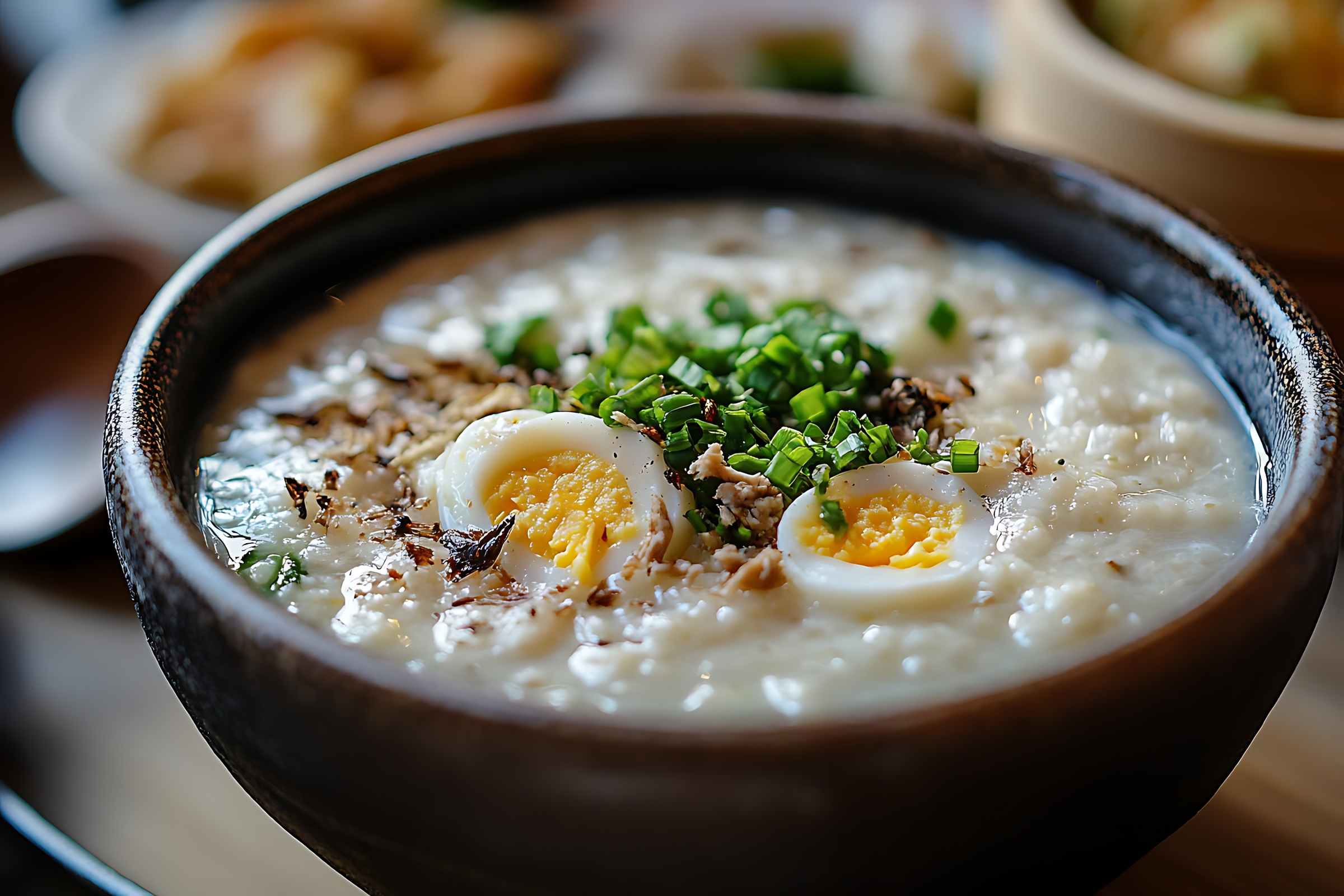Answer:
Onion porridge combines ingredients like rice, onions, scallions, ginger, and perilla leaves. Many people eat it when they have a cold or the flu, or after being in the rain. According to Traditional Medicine, onions, ginger, and perilla leaves contain essential oils with antibacterial properties. They are also rich in vitamins, fiber, and antioxidants, which help warm the body, induce sweating, relieve nasal congestion, and soothe sore throats. These ingredients, combined with white rice and cooked into a thin porridge, are easy to digest for those who are sick or feeling unwell. Therefore, this dish is used as a supportive remedy for colds and the flu, along with rest, adequate hydration, and medication as directed by a doctor.
While beneficial for health, onion porridge does not prevent respiratory illnesses, including the flu. The flu spreads through the air when a healthy person inhales droplets containing the virus from an infected person's nose or throat. It can also be contracted by touching contaminated objects and then touching one's eyes, nose, or mouth.
Flu symptoms include fever, headache, body aches, sore throat, sneezing, and coughing. After entering the respiratory tract, the flu virus can multiply and spread to other organs, causing pneumonia, otitis media, respiratory failure, meningitis, and sepsis.
 |
Eating onion porridge helps induce sweating and aids digestion, but it doesn't prevent respiratory illnesses, including the flu. Photo: Vecteezy |
Eating onion porridge helps induce sweating and aids digestion, but it doesn't prevent respiratory illnesses, including the flu. Photo: Vecteezy
Since you frequent crowded places, you should take preventive measures like wearing a mask, regularly gargling and rinsing your nose with saline solution, and avoiding touching your eyes, nose, and mouth. Maintain a nutritious diet, get enough sleep, exercise regularly, and adopt a healthy lifestyle. Avoid staying up late, consuming alcohol, and smoking.
Flu can be effectively prevented with vaccines. Vietnam currently has 4 flu vaccines. The French, Dutch, and South Korean vaccines are suitable for children from 6 months old and adults. The Vietnamese vaccine is for people aged 18 to 60. Individuals 9 years and older require an initial dose, followed by an annual booster to maintain immunity and protect against circulating flu strains.
Vietnam also offers vaccines for other respiratory illnesses, particularly those prevalent in crowded settings, such as chickenpox, measles, meningococcal disease, and pneumococcal disease, for both children and adults. For effective disease prevention, check your vaccination history and get vaccinated as soon as possible.
Doctor Doan Thi Khanh Cham
Medical Manager, VNVC Vaccination System
Readers can submit vaccine-related questions for doctors to answer here.












